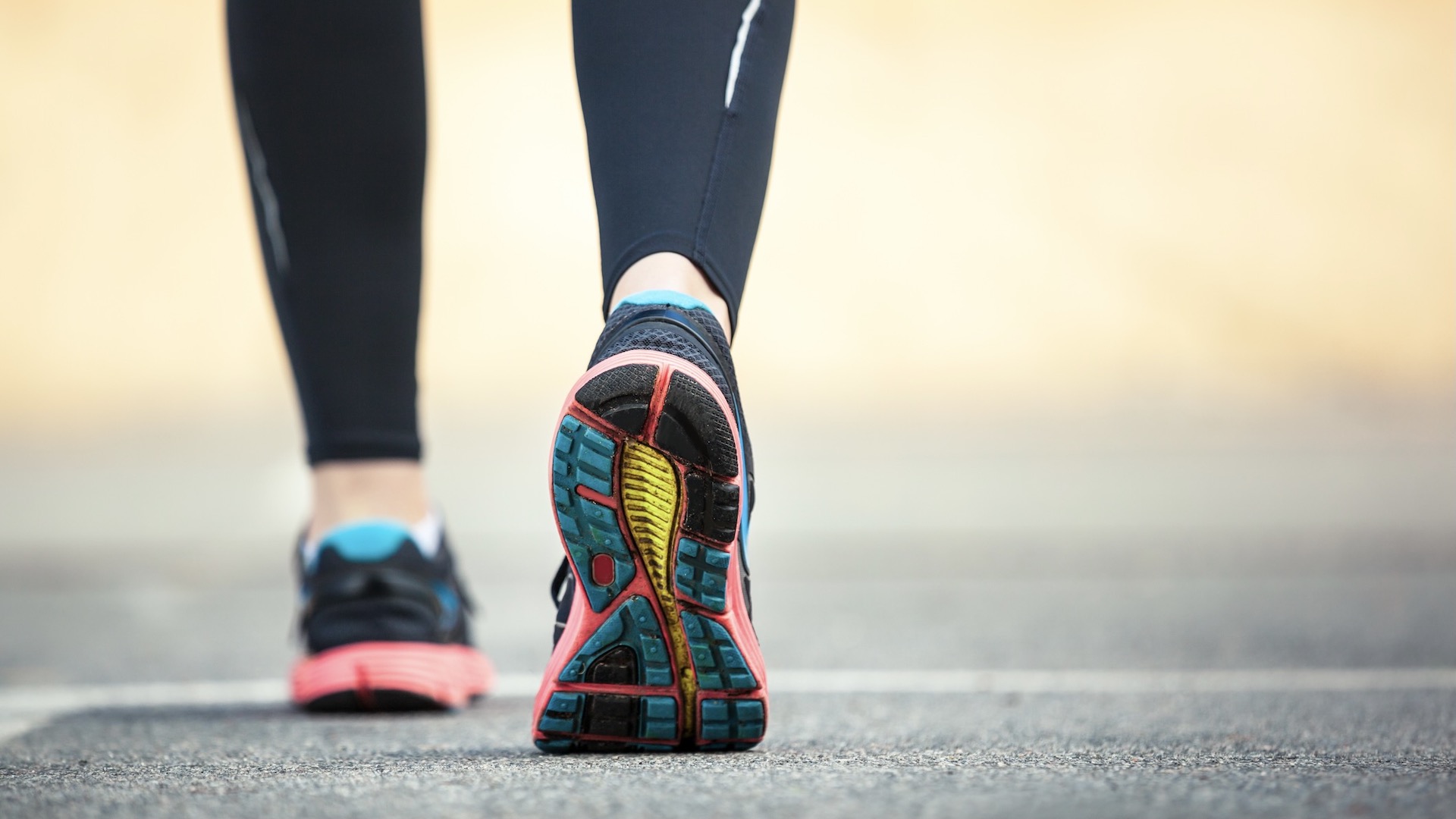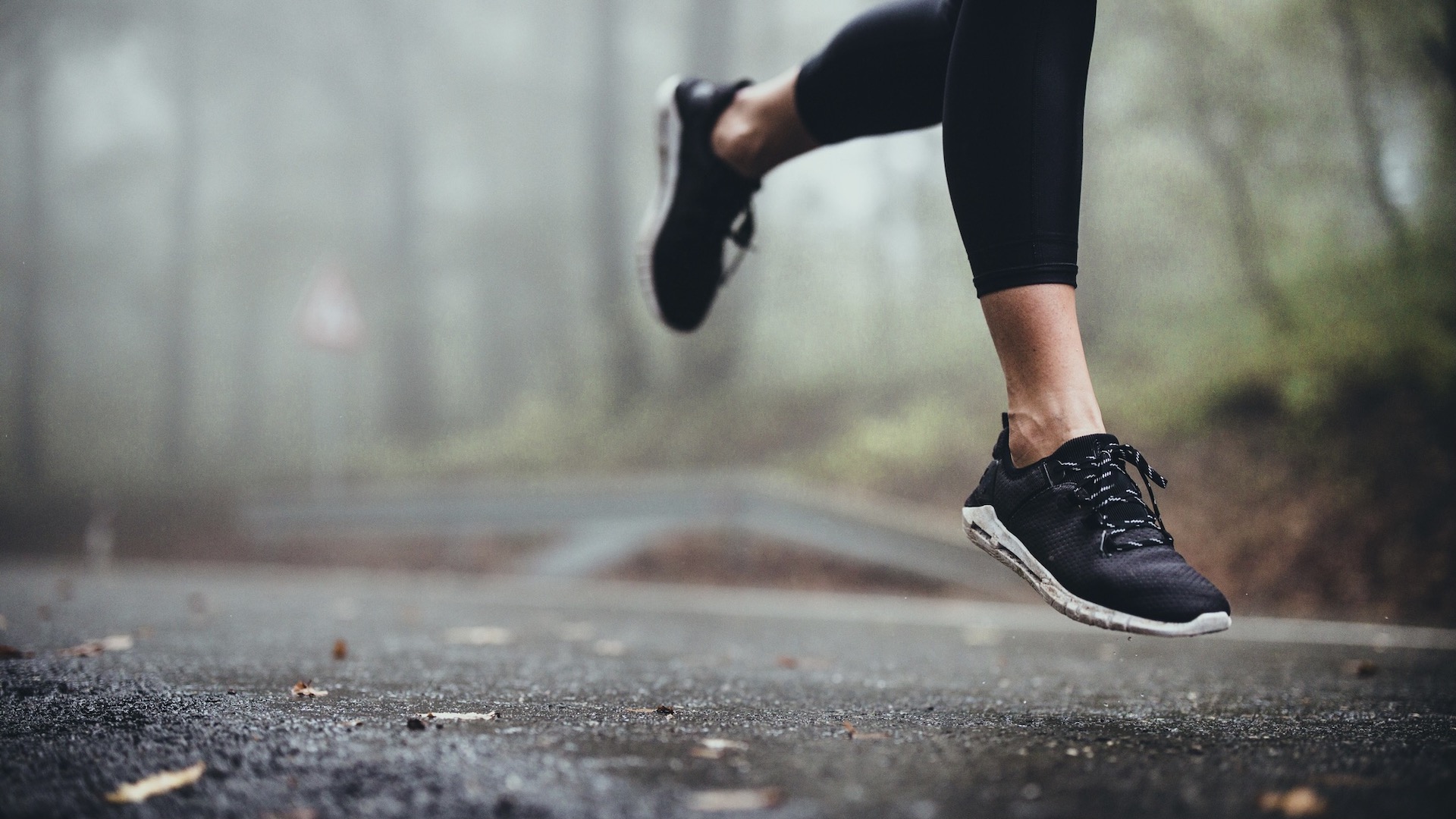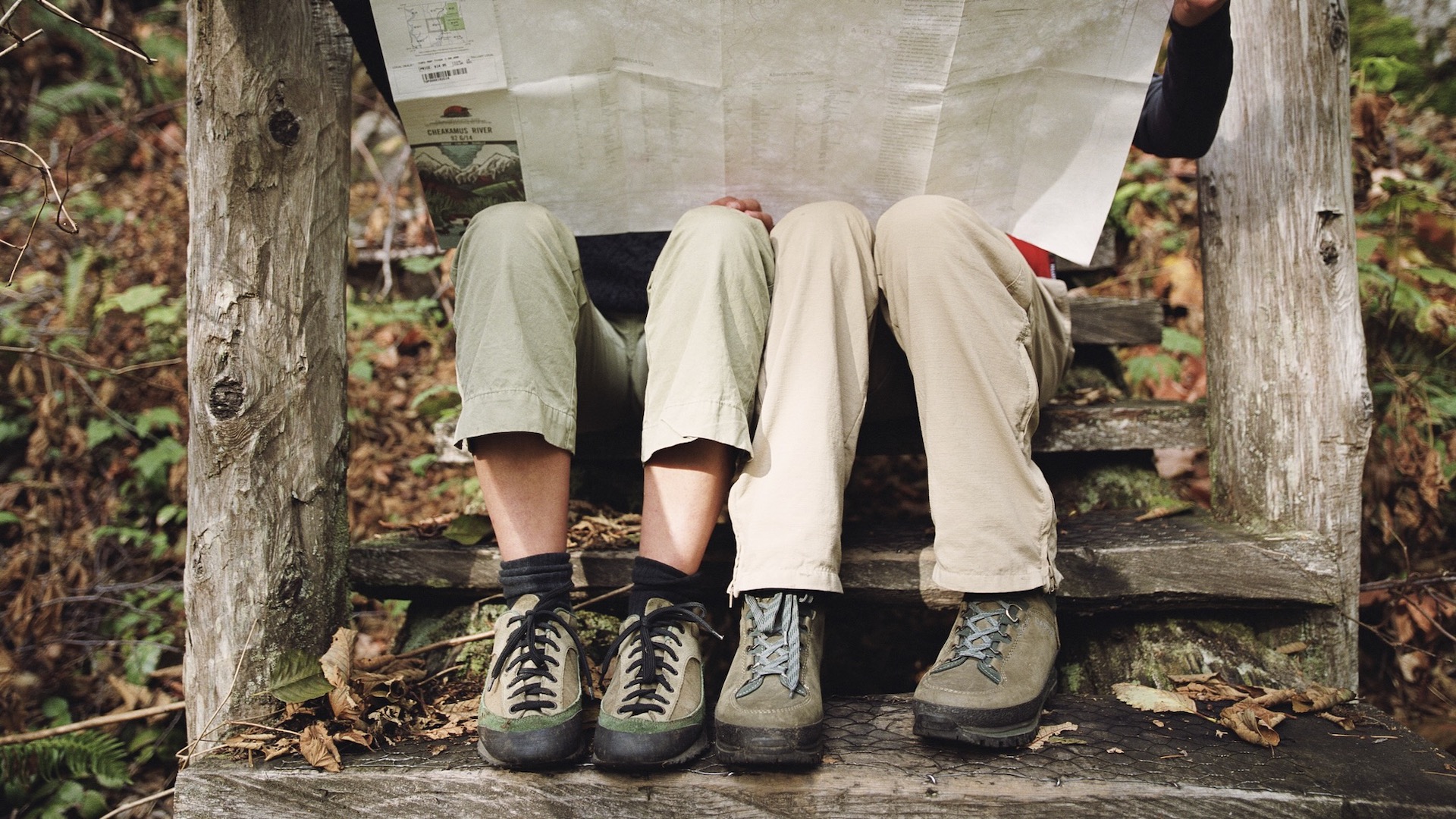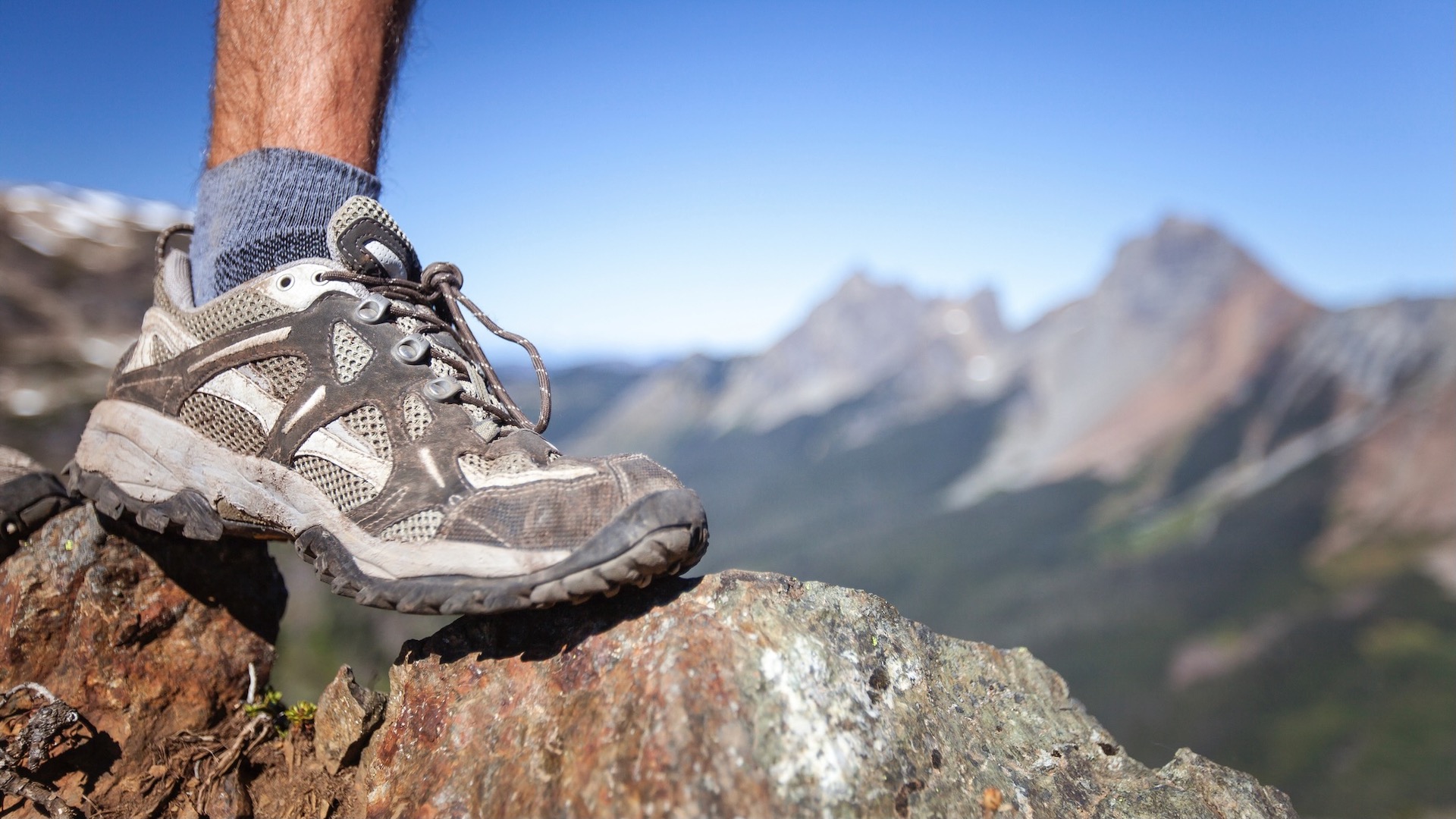Are road running shoes good for hiking?
A guide to the pros and cons of wearing your favourite running footwear for a hike

All the latest inspiration, tips and guides to help you plan your next Advnture!
You are now subscribed
Your newsletter sign-up was successful
The chances are you already have several different pairs of running shoes. Many runners have road running footwear, as well as shoes for trail running. With cost an issue, you might be wondering if you can use your running shoes for hiking. Well, the answer is, it depends.
First let’s look at what defines a running shoe and a hiking shoe.

What are running shoes?
Road running footwear is designed to offer comfort and performance on mainly hard surfaces and terrain with few irregularities. Running shoes are usually lightweight and flexible, too.
Also, road running shoes will offer stabilization and cushioning for the feet and joints when taking hundreds of repetitive steps on hard and even surfaces.
The outsole grip is meant for use on hard surfaces, too, rather than trail running shoes, which tend to have more aggressive lugs for better grip on rough and irregular terrain, as well as in the mud.
Road running shoes may have a waterproof liner, such as a Gore-Tex layer, but mainly the uppers will be lightweight and breathable, rather than built for waterproofing.
Road running shoes will have limited protection features on the upper part of the shoe to guard against low-scale pavement debris. This is one of the biggest differences between road and trail shoes, other than the sole. Road running shoes usually feature lower levels of protection from environmental debris compared to the best trail running shoes, which have features like a rand and toe-cap to protect against trail obstacles such as stones, rocks and vegetation.
All the latest inspiration, tips and guides to help you plan your next Advnture!
It’s generally estimated that running shoes will last for around 500 miles, or for up to four months with regular use.

What are hiking shoes?
Footwear for hiking is usually bulkier, stiffer and more robust than a road running shoe. It’s possible to buy lightweight hiking shoes but it’s likely they will still feature more details, such as a more rigid and durable sole, a mid-cut ankle and uppers made of thicker and more durable materials.
The aim of a hiking shoe is to give support and comfort, as well as grip and waterproofing, when hiking on trails.
A hiking shoe is generally lighter than a hiking boot and without an high ankle cuff but all hiking footwear is designed to give comfort and support when carrying a hiking pack.
Hiking shoes should last much more than 500 miles.

Pros and cons of road running shoes for hiking
There are various different features to consider in both road running shoes and hiking shoes when deciding if road running shoes are good for hiking.
What’s the terrain?
If you plan to hike on terrain and surfaces similar to those for road running, especially tarmac, your normal road running shoes should work well, although it's worth noting that your running gait and walking gait will be different. For example, your forefoot or heel strike will differ whether hiking or running.
Bear in mind that the cushioning of road running shoes might not be adequate – or not in the right place – for long-distance walking on tarmac, and you may find you get sore feet.
In addition, if you will be hiking on trails, you should consider the fact that most road running footwear is not specifically designed to protect the foot on rough terrain, especially if it's rocky, stony and has lots of vegetation. This means foot protection and durability will be an issue. It’s likely your road running shoes will wear out more quickly due to the wear and tear of trails.
The width of the shoe's sole, the ankle support, and the lacing of footwear will different for road running and hiking. In particular, when hiking, you will require extra support and stabilization of the foot and leg because you are likely to be carrying a hiking backpack and on more uneven terrain.
Then there's the type of sole and cushioning to think about. Some road running shoes have deep and cushioned soles and these will be fine for running and hiking when the terrain is generally flat and even. But, as soon as you head off-road, you may find you are more prone to going over on your ankles. A deeper sole can create a more unstable hiking platform.
The grip of the soles is another consideration. While road running shoes will be fine on tarmac and some hard-packed paths, if the terrain becomes too rough, rocky, stoney and steep you will find your body, ankles and feet suffer from lack of adequate stabilization. Road running shoes are unlikely to provide the right support and traction on rough off-road terrain.
Conclusion: If you are hiking on off-road trails, it’s likely you will not have enough protection or support from a simple road running shoe. A hiking shoe is designed to cope with rough terrain.
You could use road running footwear for hiking on harder and more even terrain, such as in the same sort of places that usually go for a run. It's also worth considering a good quality trail running shoe for trail and hill hiking.
Weight versus durability
Lightweight footwear requires the wearer to use less energy step by step. Many runners choose the lightest running shoes for shorter distance races, such as 5ks and 10ks, because the aim is to go faster and minimise the energy used during each stride.
Lightweight ultra running shoes are also popular. An issue with many lightweight shoes is that tend to wear out more quickly, because lighter and thinner products are used as part of the shoe so a slightly heavier shoe can mean greater longevity.
Note, that there are modern lightweight materials ,such as graphene, that make running and hiking shoes both lightweight and durable but there is still the upper materials to consider.
It’s the same when walking: the lighter the shoe the less energy you will use for each stride. But lightweight shoes usually mean a sacrifice in durability and support features. It’s a matter of deciding on the balance of wight versus durability.
Conclusion: In the end, it could be that it is better to choose a relatively lightweight pair of the best hiking shoes, or go for a trail running shoe, rather than a road running shoe.

Waterproofing
Unless your hiking will be in warm and dry conditions, the chances are you will want footwear that is waterproof, as well as breathable. You may find road running shoes with a waterproof liner, such as Gore-Tex, but this is not a standard feature.
On the other hand, hiking shoes are more likely than not to have a waterproofing feature, whether it is a fabric boot with Gore-Tex membrane or a leather upper.
Conclusion: Waterproofing is likely to be important if you are hiking year-round, so a waterproof hiking shoe will be better than many road running shoes. It cold also be a good idea to look at waterproof trail running footwear.
Cost factor
Owning different footwear for each different pursuit can be expensive. It’s tempting to use road running shoes for trail running and hiking, too. However, the chances are you will end up with both road running shoes for road running and hiking shoes or boots for hiking on trails.
Conclusion: The number of different shoes that you own for different sports will depend on how much money you have to spend.
Final word: are road running shoes good for hiking?
As you can see, there are plenty of pros and cons to both road running shoes for hiking and having specific footwear. In the end, it might be a false economy to wear road running shoes for hiking, especially if you are hiking on rough trails, because the terrain, debris and vegetation will ruin the shoes.
For the best support and grip for hiking on trails, you will be better wearing specific hiking shoes or boots, or you could utilise trail running shoes.
If you are still keen to try running shoes for hiking it’s important to look for good outsole grip, a slightly heavier shoe for durability, good quality features, such as Gore-Tex, and upper shoe protection, as well as a well supporting ankle cuff and lacing system.
- Best hiking shoes: lightweight footwear for tough terrain

Fiona Russell is a widely published adventure journalist and blogger, better known as Fiona Outdoors. She is based in Scotland and is an all-round outdoors enthusiast with favorite activities including trail running, mountain walking, mountain biking, road cycling, triathlon and skiing (both downhill and backcountry). Aside from her own adventures, Fiona's biggest aim is to inspire others to enjoy getting outside and exploring, especially through her writing. She is also rarely seen without a running skort! Find out more at Fiona Outdoors.
